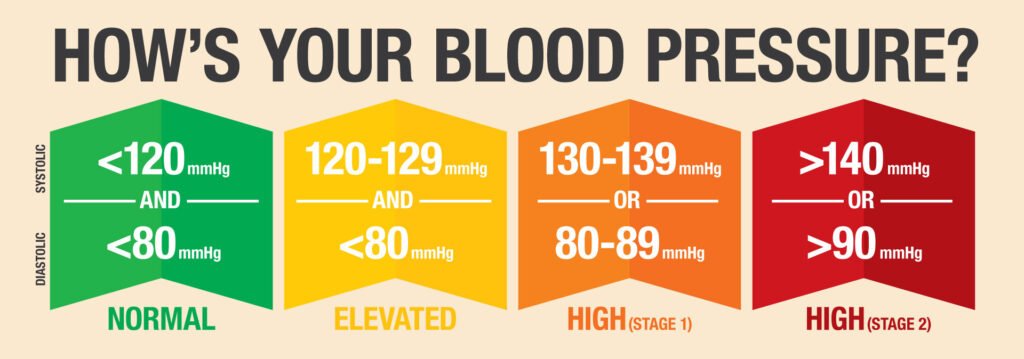
Young People Are Not Afraid of Heart Disease? Are There Signs of Illness? 10 Common Heart Disease Questions
According to WHO death statistics, on average, someone dies from heart disease every 24 minutes. It is the number one disease among the top ten causes of death. How much do you know about it? This article will sort out the common questions about heart disease that many people have. To prevent heart disease, start by understanding it!
1.Are there necessarily precursors to heart disease?
NO
There are many signs of a heart attack, including:
- Angina pectoris (feeling of heavy pressure on chest)
- Palpitations
- Chest pain
- Dizziness
- Difficulty breathing, rapid breathing
- Tired
- Swelling of lower limbs
- Irregular heartbeat (arrhythmia)
- Neck, jaw, arm, back, or abdominal pain
However, not every patient with heart disease will develop the above symptoms. In particular, female heart disease patients are less likely to present with typical signs of heart disease or myocardial infarction. For example, they do not present with typical angina pectoris, but with transferred pain, such as pain in the jaw, arms, or inexplicable physical fatigue. Feeling present. Therefore, regular heart health check-ups are an important way to understand and track whether you are at risk from heart disease.
2.Is there any way to check whether I have heart disease?
There are many examination methods for heart disease, including electrocardiogram (ECG, EKG), exercise electrocardiogram, chest X-ray, computed tomography (CT scan), cardiac magnetic resonance examination (MRI), myocardial perfusion scan (Myocardial perfusion scan), and computed tomography Angiography (CTA) and cardiac catheterization, etc. (Recommended reading: ECG or cardiac catheterization? An overview of invasive and non-invasive cardiac tests)
Generally speaking, blood tests, electrocardiograms, exercise electrocardiograms, etc. will be used to first check the patient’s heart condition, and then appropriate methods will be used for further examination based on the discovered problems.
3.High blood pressure = heart disease? What is high blood pressure?
High blood pressure does not necessarily cause heart disease, but it can increase your risk.
Blood pressure is calculated in millimeters of mercury (mmHg). Please see the chart below to understand the stages of high blood pressure:
If your blood pressure has reached prehypertension, you should start improving your living habits and diet to reduce the risk of hypertensive heart disease. Patients who are already in the first or second stage of hypertension should measure their blood pressure regularly and see a doctor to discuss how to improve and check their physical condition.
In the past, high blood pressure was defined as above 140/90 mmHg, but in 2017, the American Heart Association more strictly redefined blood pressure as above 130/80 mmHg (systolic blood pressure 130 mmHg, diastolic blood pressure 80 mmHg).
4.Is it easy for people to find out that they have high blood pressure?
NO
The symptoms of high blood pressure are actually very subtle. A few people may experience headache, dizziness, flushed face, nosebleeds, neck tightening, difficulty breathing or shortness of breath, but most people usually have no symptoms. It is recommended that everyone develop the habit of measuring blood pressure regularly so that they can know whether they have high blood pressure.

5.I have smoked for many years. Even if I quit smoking, my risk of heart disease will not be reduced.
NO
No matter how long you have been smoking and how many packs you smoke every day, quitting smoking can reduce the chance of suffering from heart disease in the future. According to the health education information of the Ministry of Health and Welfare, as long as you quit smoking for one year, you will be less likely to suffer from coronary heart disease (Coronary heart disease, or ischemic heart disease, coronary heart disease) can be reduced by 50%. (Extended reading: Not just tobacco and alcohol! Four common first-level carcinogens in life)
Start quitting smoking now! In addition to willpower, there are also nicotine patches, chewable lozenges or other drugs, such as Varenicline or Bupropion, which can help to quit smoking. Quitting smoking is not difficult, and the government is encouraging Free drug treatment is also provided to people who want to quit smoking.
6.I’m still young and don’t need to worry about heart disease
NO
Proportionally speaking, the rate of heart disease among young people is indeed lower, but with Taiwan’s prevalent eating-out culture and sedentary work style, even young people should pay attention to their heart health. According to the results of the National Nutrition and Health Status Change Survey from 106 to 109, the prevalence rate of hypertension among young people aged 18 to 39 is 26%. Although the proportion has exceeded one-quarter, young people are more alert to hypertension and cardiovascular diseases. It is low, so you are more likely to be sick without knowing it.
In addition, even if you do not have heart problems when you are young, bad living habits and unhealthy diet will gradually accumulate fatty plaques and cause atherosclerosis, which may suddenly lead to coronary heart disease or myocardial infarction in middle age. . Therefore, maintaining heart health should start as early as possible.
7.Having a family history of heart disease will definitely lead to heart disease
Uncertain.
Excluding congenital and inherited heart diseases, most heart diseases are still related to acquired lifestyle. People with a family history of heart disease should pay more attention to their lifestyle, eat less high-cholesterol foods, less salt, choose high-fiber foods, exercise more, get enough sleep, not smoke, lose weight, and don’t forget to take your blood pressure and have regular health check-ups. , can also reduce your chance of suffering from heart disease.
8.I have a heart disease and cannot exercise regularly
NO
Exercise helps eliminate fatty plaque accumulation and improves cardiopulmonary capacity. Of course, too intense exercise can also have counter-effects, so heart disease patients are advised to discuss appropriate exercise methods with their doctors first.
Generally speaking, the more suitable form of exercise is aerobic exercise, such as jogging, brisk walking, and cycling. Since everyone’s physical condition is different, it is safer to adopt a step-by-step approach. If you don’t usually exercise, don’t set a goal for yourself all at once. It is recommended that patients with heart disease exercise three to five times a week, preferably for 30 to 60 minutes each time.
9.Myocardial infarction = cardiac arrest?
NO
Myocardial infarction is a blockage of the coronary arteries of the heart, resulting in the inability of blood circulation, but the heart still continues to beat. If the state of myocardial infarction persists, the myocardium will gradually become necrotic because it is not supplied with oxygen, or it may be complicated by arrhythmia and cause the heart to Cardiac arrest.
Arrhythmia is the main cause of cardiac arrest. Severe arrhythmia can cause abnormal electrical signals in the heart, making it impossible for the heart to beat normally and complete its task of pumping blood. However, arrhythmias can occur independently and are not necessarily caused by a myocardial infarction.
10.How to prevent blood clots?
Unhealthy diet and prolonged sitting can easily increase the risk of blood clots.
Frequently eating foods high in saturated fatty acids and trans fatty acids can easily increase the concentration of low-density lipoprotein (commonly known as bad cholesterol), making it easy for fatty plaques to accumulate in blood vessels. When these plaques accumulate more and more, before the plaques become large enough to completely block the blood vessels, the plaques may become unstable and rupture first, and then attract platelets to aggregate and block the blood vessels, causing thrombosis.
Workers who sit for long periods of time or maintain the same posture for a long time will have an increased risk of venous embolism due to poor blood circulation and lack of exercise, which will block the return of blood to the heart and cause swelling of the lower limbs. It is also possible that blood clots may peel off and circulate back to the lungs along the bloodstream, causing pulmonary embolism. In addition, sitting for long periods of time may increase the risk of coronary artery disease.
To prevent blood clots, drinking more water, choosing a healthy diet such as the Mediterranean diet and the DASH diet, and reducing sedentary time, or at least standing up and moving every once in a while, flexing and stretching your limbs, can reduce blood clots. probability of occurrence.












